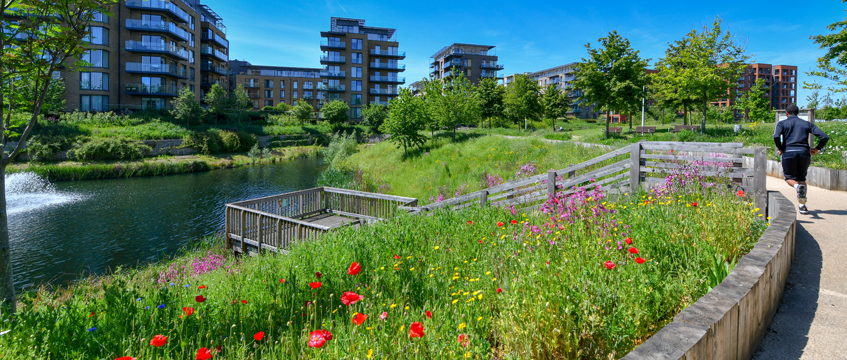Urban communities are in favour of more development, according to a new report from community engagement platform Commonplace.
The research, commissioned by British Land, Landsec and Berkeley Group, found that 60% of those polled in Cambridge, Camden, Manchester and Newham had strongly negative views of currently underdeveloped brownfield sites, viewing them as ugly, dirty and unsafe, with 73% seeing the underutilisation of these sites as a wasted opportunity that needs to be harnessed.
The research found that almost 80% believed that brownfield regeneration would positively impact their local areas, with 75% of respondents wanting brownfield regeneration prioritised over other types of development. It also showed that urban communities were open to supporting taller or denser development, providing it unlocks greater benefits for the community.
British Land, Landsec and Berkeley are now calling on the government to prioritise brownfield development, provide more grant funding to enable infrastructure delivery and unlock sites, and ensure regeneration benefits are felt and seen locally by using locally negotiated s106 agreements to agree benefits on large brownfield projects rather than the Community Infrastructure Levy.
British Land chief executive Simon Carter said: “This new research – which focused on surveying a true snapshot of those who live, rent and work in urban areas – demonstrates that urban communities are overwhelmingly Yimby when they are involved in the process and the benefits of development are clearly understood. Contrary to public perception, it is clear that this group want to see brownfield urban regeneration that delivers for the local community, creating a unique opportunity for new pragmatic policies that leverage the support of this critical demographic to unlock delivery and growth.”
“The government should feel reassured that its ambitious housing targets can be delivered with the consent of local communities – particularly in the urban areas that made up our study,” added Landsec chief executive Mark Allan. “Our research demonstrates that the public is sophisticated not only in its understanding of what constitutes good development but also the benefits local communities should expect and enjoy from development. They are ready to embrace the opportunities of brownfield urban regeneration. It’s now up to policymakers and the property sector to maximise the potential and delivery of these sites across the country.”
Berkeley Group boss Rob Perrins said the research should be “hugely encouraging” for ministers.
“Our government clearly recognises that regenerating urban land is the most sustainable way to build new homes and drive growth,” he said. “This research demonstrates that urban communities also support brownfield development and want to be involved in unlocking the positive potential of these sites.”
Read the report in full here: Brownfield urban regeneration: how to deliver more growth, homes and jobs with the support of communities
Send feedback to Samantha McClary
Follow Estates Gazette











